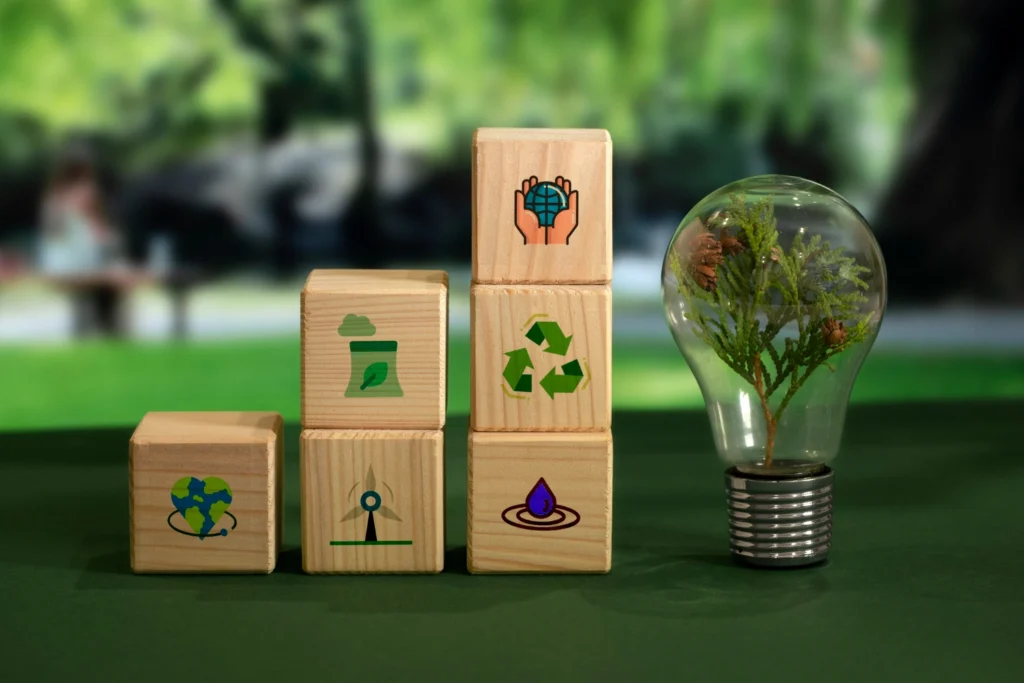Sustainability at CircuLink

Closing the loop with smarter, circular solutions
At CircuLink, sustainability isn’t a side offering — it’s the foundation of everything we do. We help businesses reduce their environmental impact by rethinking how materials are collected, recovered, reused, and returned to productive use.
We go beyond waste management to create circular, low-impact systems that align with your environmental goals, reduce emissions, and deliver real commercial value.
Circular Economy
What Is the Circular Economy?
A circular economy is a regenerative model that keeps materials and resources in use for as long as possible — through reuse, repair, refurbishment, remanufacturing, and recycling.
Unlike the traditional “take-make-waste” approach, circular systems aim to eliminate waste at the design stage, extend the life of products, and reduce the need for virgin resource extraction.
By transitioning to a circular economy, global emissions could be reduced by 39% by 2032, and generate up to £3.4 trillion in economic benefits by 2030.
(Source: WEF & Ellen MacArthur Foundation)
Why the World Needs a Circular Economy
Every year, over 2 billion tonnes of waste are produced globally — much of it landfilled or lost to nature. Meanwhile, resource extraction continues at unsustainable rates, threatening ecosystems and climate stability.
A circular model offers the solution:
A circular model offers the solution:
- Keeps materials in use
- Reduces pollution and emissions
- Regenerates natural systems
- Spurs sustainable innovation and growth
How the Circular Economy Works
The circular model functions by preserving the utility of materials through multiple cycles. This includes:
- Make – design products for durability, disassembly, and recyclability
- Use – extend product life through reuse and repair
- Collect – gather materials post-use for processing
- Reuse – reintroduce into the supply chain
CircuLink’s role is to make this cycle easy, measurable, and accessible for businesses.
Our Sustainability Commitments
- 98% Diversion from Landfill
We maximise recovery through recycling, RDF/SRF fuels, and reuse strategies.
- Carbon Impact Reduction
We support carbon tracking and provide access to verified offset projects, such as reforestation, methane capture, and renewable energy generation.
- Circular Resource Supply
We supply recovered materials — like wood, metals, and fuels — to manufacturers and energy facilities, helping reduce demand for virgin materials.
- Transparent Reporting
Every client receives data on waste volumes, recovery routes, carbon performance, and compliance — supporting your ESG goals and audits.
Why Businesses Are Going Circular
The circular economy isn’t just good for the planet — it’s smart business. Companies embracing circularity see:
Economic Benefits
Reduce material costs, generate resource value, and meet ESG expectations.
Social Benefits
Support local supply chains, reduce pollution, and align with community values.
Environmental Benefits
Cut emissions, conserve resources, and protect biodiversity.
Industries We Help Transition
CircuLink supports circular solutions across diverse sectors, including:
- Construction and Demolition
- Retail and Hospitality
- Commercial and Industrial Estates
- Manufacturing and Logistics
- Public Sector and Education
Whether you’re closing the loop on packaging, raw materials, or by-products — we help you turn ambition into action.
Let’s Build a Smarter, Cleaner Future
CircuLink is here to help your business adopt circular thinking and act decisively — through data, logistics, and environmental insight.









